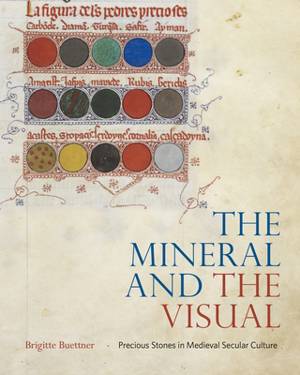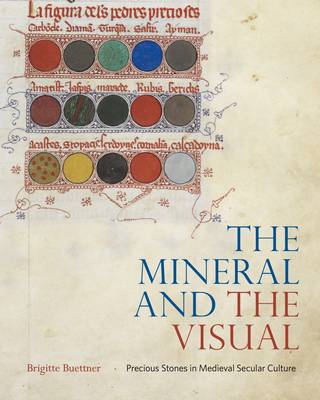
- Afhalen na 1 uur in een winkel met voorraad
- Gratis thuislevering in België vanaf € 30
- Ruim aanbod met 7 miljoen producten
- Afhalen na 1 uur in een winkel met voorraad
- Gratis thuislevering in België vanaf € 30
- Ruim aanbod met 7 miljoen producten
The Mineral and the Visual
Precious Stones in Medieval Secular Culture
Brigitte BuettnerOmschrijving
Opulent jeweled objects ranked among the most highly valued works of art in the European Middle Ages. At the same time, precious stones prompted sophisticated reflections on the power of nature and the experience of mineralized beings. Beyond a visual regime that put a premium on brilliant materiality, how can we account for the ubiquity of gems in medieval thought?
In The Mineral and the Visual, art historian Brigitte Buettner examines the social roles, cultural meanings, and active agency of precious stones in secular medieval art. Exploring the layered roles played by gems in aesthetic, ideological, intellectual, and economic practices, Buettner focuses on three significant categories of art: the jeweled crown, the pictorialized lapidary, and the illustrated travel account. The global gem trade brought coveted jewels from the Indies to goldsmiths' workshops in Paris, fashionable bodies in London, and the crowns of kings across Europe, and Buettner shows that Europe's literal and metaphorical enrichment was predicated on the importation of gems and ideas from Byzantium, the Islamic world, Persia, and India.
Original, transhistorical, and cross-disciplinary, The Mineral and the Visual engages important methodological questions about the work of culture in its material dimension. It will be especially useful to scholars and students interested in medieval art history, material culture, and medieval history.
Specificaties
Betrokkenen
- Auteur(s):
- Uitgeverij:
Inhoud
- Aantal bladzijden:
- 272
- Taal:
- Engels
Eigenschappen
- Productcode (EAN):
- 9780271092508
- Verschijningsdatum:
- 6/09/2022
- Uitvoering:
- Hardcover
- Formaat:
- Genaaid
- Afmetingen:
- 208 mm x 257 mm
- Gewicht:
- 1247 g

Alleen bij Standaard Boekhandel
Beoordelingen
We publiceren alleen reviews die voldoen aan de voorwaarden voor reviews. Bekijk onze voorwaarden voor reviews.











